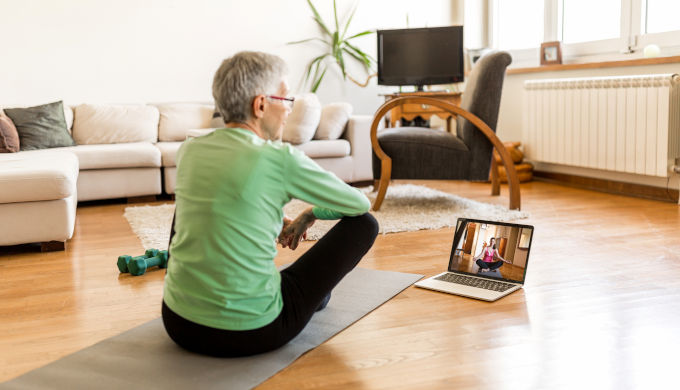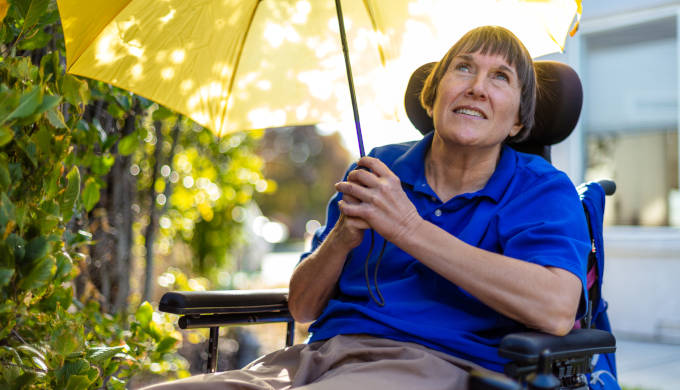Author: Laura Cowen
medwireNews: People with knee osteoarthritis may experience modest improvements in physical function while following a 12-week self-guided online yoga program, but the benefits are not sustained when the exercise is stopped, researchers report.
Kim Bennell (University of Melbourne, Victoria, Australia) and colleagues randomly assigned 212 adults with symptomatic knee osteoarthritis to have access to a website that contained videos of 12 prerecorded 30-minute yoga sessions (one video per week, with each session to be performed three times per week) along with educational information about osteoarthritis or to a website that contained education materials only.
They report in the Annals of Internal Medicine that individuals in the yoga group (n=107) took part in 2.5 sessions per week, on average, with 69% having acceptable adherence (≥2 sessions per week).
Participants in the control group (n=105) accessed their online information website for a mean of 9.8 minutes during the first 12 weeks.
After 12 weeks, the mean WOMAC physical function score had improved by 9.3 points, from a baseline of 25.5 points, among the participants in the yoga group. In the control group, the mean improvement was 4.7 points, from a baseline of 24.0 points. The resulting between-group mean difference in change was 4.0 points, which the researchers note was statistically significant but below the 6.0-point threshold for a minimal clinically important difference (MCID).
For the second primary endpoint of knee pain during walking the mean improvement at 12 weeks was 2.0 points on a numeric rating scale of 0–10 in the yoga group and 1.4 points in the control group, from a baseline of 6.3 points in both groups. The between-group mean difference of 0.6 points was neither statistically nor clinically significant (MCID threshold=1.8 points).
However, Bennell and team found that more participants in the yoga group than in the control group achieved a clinically significant improvement for both function (60 vs 44%) and pain during walking (60 vs 41%).
Among the secondary endpoints, WOMAC knee stiffness, quality of life, and arthritis self-efficacy improved significantly more with than without yoga but not by a clinically significant degree. There were no differences between the two groups at 12 weeks in WOMAC knee pain, anxiety, depression, stress, fear of movement, or balance confidence.
Furthermore, the yoga program was optional after the initial 12-week period, and the benefits from the intervention were not maintained at 24 weeks.
Bennell et al conclude: “Our results are promising, but further research is needed to fully establish the effects of unsupervised online yoga and to potentially improve on our program in order to enhance treatment benefits.”
medwireNews is an independent medical news service provided by Springer Healthcare Ltd. © 2022 Springer Healthcare Ltd, part of the Springer Nature Group
Image Credits: © NoSystem images / Getty Images / iStock



